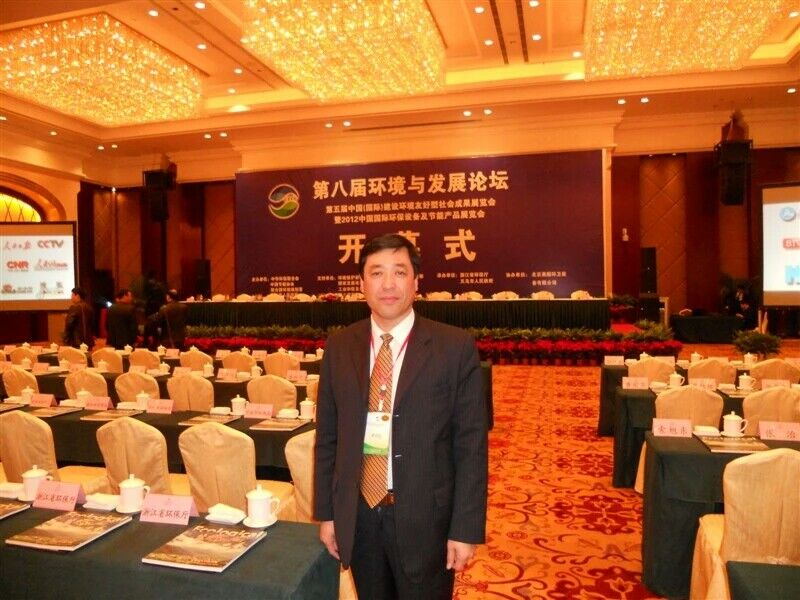Article 2 The State encourages foreign companies, enterprises and other economic organizations or individuals (hereinafter referred to as "foreign investors") to establish Chinese-foreign equity joint ventures, Chinese-foreign contractual joint ventures and foreign capital enterprises (hereinafter referred to as "enterprises with foreign investment") within the territory of China.
The State grants special preferences to the following enterprises with foreign investment:
(1) Production enterprises whose products are mainly for export, and which have a foreign exchange surplus, after deducting from their total annual foreign exchange revenues, the annual foreign exchange expenditures incurred in production and operation and the foreign exchange needed for the remittance abroad of the profits earned by foreign investors (hereinafter referred to as "product-for-export enterprises").
(2) Production enterprises possessing advanced technology supplied by foreign investors which are engaged in developing new products, and upgrading and replacing products in order to increase the foreign exchange generated by exports or for import substitution (hereinafter referred to as "technologically advanced enterprises").
The State grants special preferences to the following enterprises with foreign investment:
(1) Production enterprises whose products are mainly for export, and which have a foreign exchange surplus, after deducting from their total annual foreign exchange revenues, the annual foreign exchange expenditures incurred in production and operation and the foreign exchange needed for the remittance abroad of the profits earned by foreign investors (hereinafter referred to as "product-for-export enterprises").
(2) Production enterprises possessing advanced technology supplied by foreign investors which are engaged in developing new products, and upgrading and replacing products in order to increase the foreign exchange generated by exports or for import substitution (hereinafter referred to as "technologically advanced enterprises").
Article 3 Product-for-export enterprises and technologically advanced enterprises shall be exempt from the payment of all subsidies to be granted by the State to staff and workers, except for the payment of or allocation of funds for labor insurance, welfare costs and housing subsidies for Chinese staff and workers in accordance with the provisions of the State.
Article 4 The site use fees for product-for-export enterprises and technologically advanced enterprises, except for those located in busy urban sectors of large cities, shall be computed and charged according to the following standards:
(1) five to twenty RMB yuan per square meter per year in areas where the development fee and the site use fee are computed and charged together;
(2) not more than three RMB yuan per square meter per year in site areas where the development fee is computed and charged on a one-time basis or areas which are developed by the above-mentioned enterprises themselves.
Exemptions for specified periods of time from the fees provided in the foregoing provision may be granted at the discretion of the local people's governments.
(1) five to twenty RMB yuan per square meter per year in areas where the development fee and the site use fee are computed and charged together;
(2) not more than three RMB yuan per square meter per year in site areas where the development fee is computed and charged on a one-time basis or areas which are developed by the above-mentioned enterprises themselves.
Exemptions for specified periods of time from the fees provided in the foregoing provision may be granted at the discretion of the local people's governments.
Article 5 Product-for-export enterprises and technologically advanced enterprises shall be given priority in obtaining water, electricity, transportation services and communication facilities needed for their production and operation. Fees shall be computed and charged in accordance with the standards for local state enterprises.
Article 8 After the expiration of the period for the reduction or exemption of enterprise income tax in accordance with the provisions of the state, product-for-export enterprises, whose value of export products in that year amounts to 70 percent or more of the value of their products for that year, may pay enterprise income tax at one-half of the current tax rate.
Product-for-export enterprises in the special economic zones and in the economic and technological development zones and other product-for-export enterprises that already pay enterprise income tax at a tax rate of 15 percent and that comply with the foregoing conditions, may pay enterprise income tax at a rate of 10 percent.
Product-for-export enterprises in the special economic zones and in the economic and technological development zones and other product-for-export enterprises that already pay enterprise income tax at a tax rate of 15 percent and that comply with the foregoing conditions, may pay enterprise income tax at a rate of 10 percent.
Article 10 Foreign investors who reinvest their shares of profits from their enterprises in order to establish or expand product-for-export enterprises or technologically advanced enterprises for a period of operation of not less than five years, after application to and approval by the tax authorities, shall be refunded the total amount of enterprise income tax already paid on the reinvested portion. If the investment is withdrawn before the period of operation reaches five years, the amount of enterprise income tax refunded shall be repaid.
Article 12 Enterprises with foreign investment may arrange the export of their products directly or may also export by consignment to agents in accordance with state provisions. For products that require an export license, in accordance with an annual export plan of the enterprises, an application for export licenses shall be made every six months.
Article 13 Machinery and equipment, vehicles used in production, raw materials, fuel, bulk parts, spare parts, machine component parts and fittings (including imports restricted by the state), which enterprises with foreign investment need to import in order to carry out their export contracts do not require further applications for examination and approval and are exempt from the requirement for import licenses. The Customs shall exercise supervision and control, and shall inspect and release such imports on the basis of the enterprise contracts or the import-export contracts.
The imported materials and items mentioned above are restricted to use by the enterprise itself and may not be sold in the domestic market. If they are used as products to be sold in the domestic market, import procedures shall be completed in accordance with the relevant provisions and duties shall be paid according to the relevant regulations.
The imported materials and items mentioned above are restricted to use by the enterprise itself and may not be sold in the domestic market. If they are used as products to be sold in the domestic market, import procedures shall be completed in accordance with the relevant provisions and duties shall be paid according to the relevant regulations.
Article 14 Under the supervision of the foreign exchange control departments, enterprises with foreign investment may mutually adjust their foreign exchange surpluses and deficiencies among themselves.
The Bank of China and other banks designated by the People's Bank of China may provide cash security services and may grant loans in Renminbi to enterprises with foreign investment.
The Bank of China and other banks designated by the People's Bank of China may provide cash security services and may grant loans in Renminbi to enterprises with foreign investment.
Article 15 The people's governments at various levels and the relevant departments in charge shall guarantee the right of autonomy of enterprises with foreign investment and shall support enterprises with foreign investment in managing themselves in accordance with international advanced scientific methods.
Within the scope of their approved contracts, enterprises with foreign investment have the right to draw up, of their own accord, production and operation plans, to raise funds, to use funds, to purchase production materials and to sell products, and to determine by themselves the wage levels, the forms of wages and the bonus and allowance system. Enterprises with foreign investment may, in accordance with their production and operation requirements, determine by themselves their organizational structure and personnel system, employ or dismiss senior management personnel, and increase or dismiss staff and workers. They may recruit and employ technical personnel, managerial personnel and workers in their locality. The units to which such employed personnel belong should support the employment and permit the transfers. Staff and workers who violate the rules and regulations, and thereby cause certain detrimental consequences may, depending on the seriousness of the case, be given varying sanctions which could include a discharge. Enterprises with foreign investment that recruit, employ, dismiss or discharge staff and workers, shall file a report with the local labor and personnel department for the record.
Within the scope of their approved contracts, enterprises with foreign investment have the right to draw up, of their own accord, production and operation plans, to raise funds, to use funds, to purchase production materials and to sell products, and to determine by themselves the wage levels, the forms of wages and the bonus and allowance system. Enterprises with foreign investment may, in accordance with their production and operation requirements, determine by themselves their organizational structure and personnel system, employ or dismiss senior management personnel, and increase or dismiss staff and workers. They may recruit and employ technical personnel, managerial personnel and workers in their locality. The units to which such employed personnel belong should support the employment and permit the transfers. Staff and workers who violate the rules and regulations, and thereby cause certain detrimental consequences may, depending on the seriousness of the case, be given varying sanctions which could include a discharge. Enterprises with foreign investment that recruit, employ, dismiss or discharge staff and workers, shall file a report with the local labor and personnel department for the record.
第十五條 各級人民政府和有關主管部門應當保障外商投資企業的自主權,支持外商投資企業按照國際上先進的科學方法管理企業。
外商投資企業有權在批準的合同范圍內,自行制定生產經營計劃,籌措、運用資金,采購生產資料,銷售產品;自行確定工資標準、工資形式和獎勵、津貼制度。
外商投資企業可以根據生產經營需要,自行確定其機構設置和人員編制,聘用或者辭退高級經營管理人員,增加或者辭退職工;可以在當地招聘和招收技術人員、管理人員和工人,被錄用人員所在單位應當給予支持,允許流動;對違反規章制度,造成一定后果的職工,可以根據情節輕重,給予不同處分,直至開除。外商投資企業招聘、招收、辭退或者開除職工,應當向當地勞動人事部門備案。
外商投資企業有權在批準的合同范圍內,自行制定生產經營計劃,籌措、運用資金,采購生產資料,銷售產品;自行確定工資標準、工資形式和獎勵、津貼制度。
外商投資企業可以根據生產經營需要,自行確定其機構設置和人員編制,聘用或者辭退高級經營管理人員,增加或者辭退職工;可以在當地招聘和招收技術人員、管理人員和工人,被錄用人員所在單位應當給予支持,允許流動;對違反規章制度,造成一定后果的職工,可以根據情節輕重,給予不同處分,直至開除。外商投資企業招聘、招收、辭退或者開除職工,應當向當地勞動人事部門備案。
Article 16 All regions and departments must implement the Circular of the State Council Concerning Firmly Curbing the Indiscriminate Levy of Charges on Enterprises. The people's governments at the provincial level shall formulate specific measures and strengthen supervision and administration in this regard.
Enterprises with foreign investment may refuse to pay indiscriminately apportioned charges if such cases occur, and may also appeal to the local economic committees up to the State Economic Commission.
Enterprises with foreign investment may refuse to pay indiscriminately apportioned charges if such cases occur, and may also appeal to the local economic committees up to the State Economic Commission.
第十六條 各地區、各部門必須執行《國務院關于堅決制止向企業亂攤派的通知》,由省級人民政府制定具體辦法,加強監督管理。
外商投資企業遇有不合理收費的情況可以拒交;也可以向當地經濟委員會直到國家經濟委員會申訴。
外商投資企業遇有不合理收費的情況可以拒交;也可以向當地經濟委員會直到國家經濟委員會申訴。
Article 17 The people's governments at various levels and relevant departments in charge shall strengthen the co-ordination of their work, improve efficiency in handling matters and shall promptly examine and approve matters reported by enterprises with foreign investment that require a response and resolution. For the agreements, contracts and articles of association of enterprises with foreign investment to be examined and approved by the departments in charge under the State Council, the relevant examination and approval authorities must, within three months from the date of receipt of all documents, decide whether to approve or not to approve the documents.
Article 18 Product-for-export enterprises and technologically advanced enterprises mentioned in these Provisions shall be confirmed by the foreign economic relations and trade departments where such enterprises are located in conjunction with the other relevant departments in accordance with the enterprise contract, and certificates of confirmation shall be accordingly issued.
If the actual results of the annual exports of a product-for-export enterprise are unable to reach the target of a surplus in the foreign exchange balance as set in the enterprise contract, the taxes and fees which have already been reduced or exempted in the previous year shall be paid in the following year.
If the actual results of the annual exports of a product-for-export enterprise are unable to reach the target of a surplus in the foreign exchange balance as set in the enterprise contract, the taxes and fees which have already been reduced or exempted in the previous year shall be paid in the following year.
Article 19 Except for those provisions that are specifically applicable to product-for-export enterprises, these Provisions shall be applicable to all enterprises with foreign investment.
These Provisions shall be applicable to those enterprises with foreign investment that obtained approval for establishment prior to the date of these Provisions became effective and that conform to the preferential terms of these Provisions.
These Provisions shall be applicable to those enterprises with foreign investment that obtained approval for establishment prior to the date of these Provisions became effective and that conform to the preferential terms of these Provisions.










